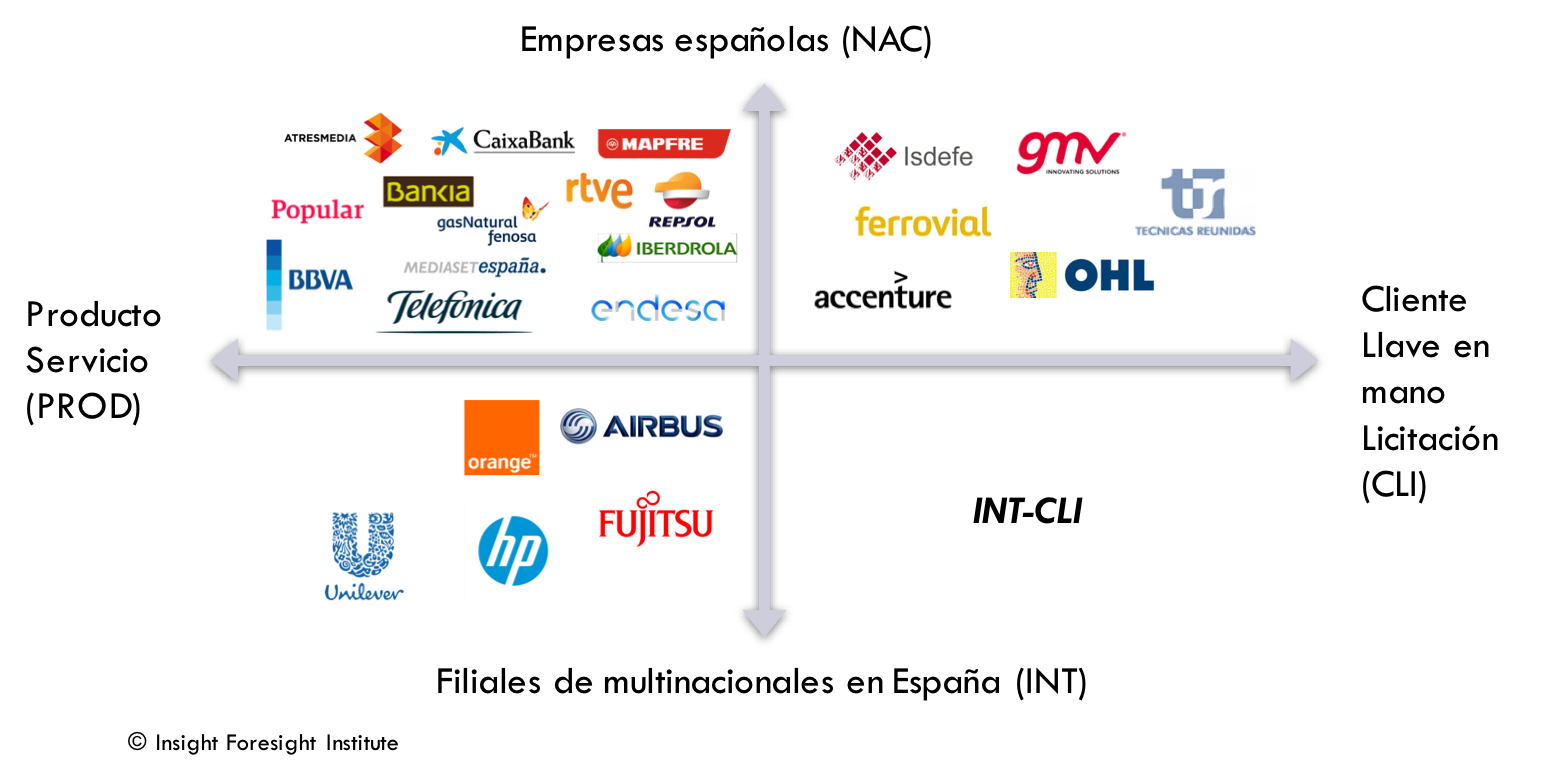The CEO of IFI, Totti Könnölä publishes with Aalto University professors in a leading research journal ‘Technological Forecasting and Social Change’ a paper on transformative governance of innovation ecosystems.
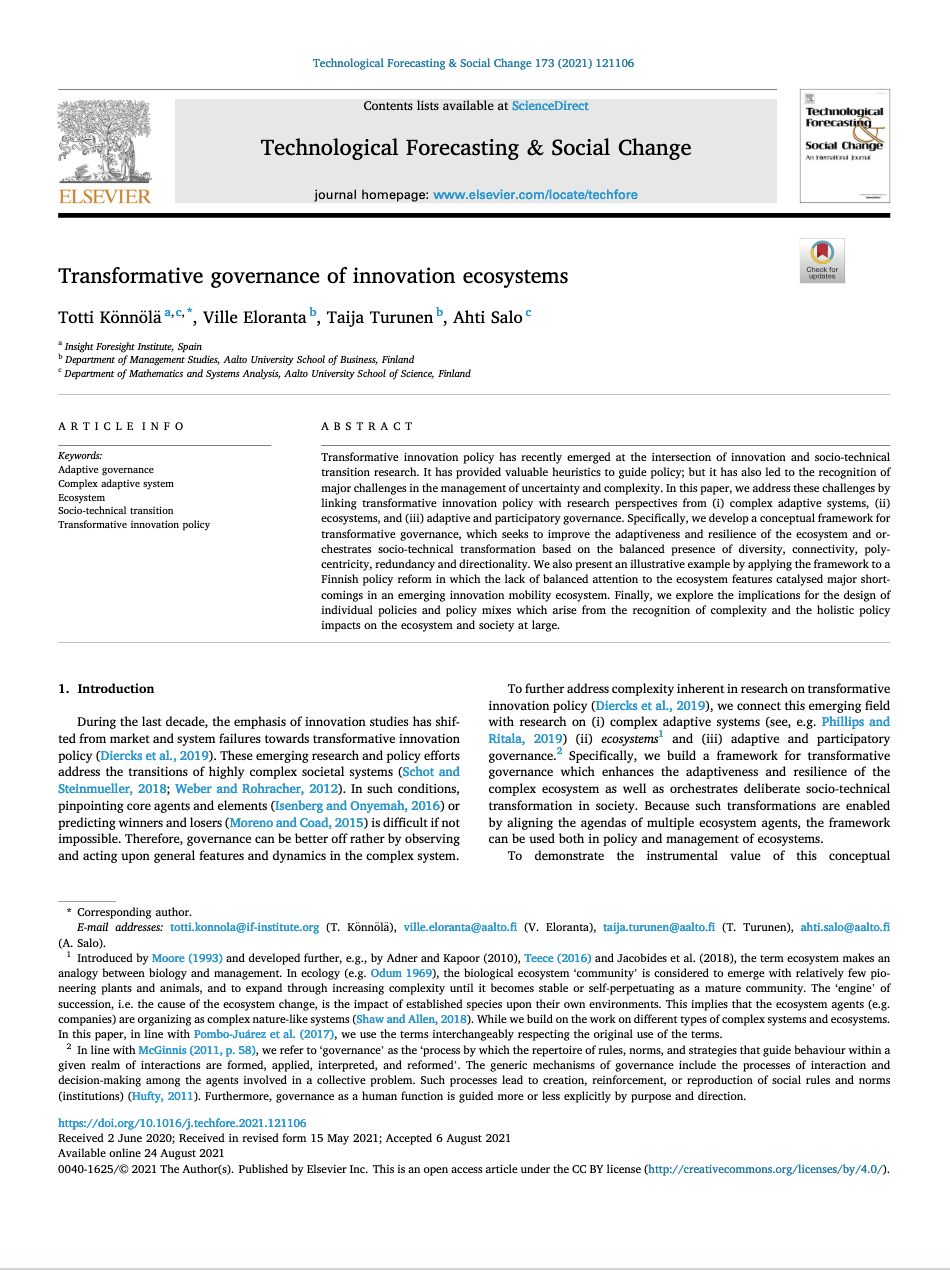
New lens for policy and management
The framework of transformative governance developed in the paper, offers a powerful new lens for policy and management contexts which are characterised by complexity and uncertainty, both within vertical policies (e.g. research, energy, mobility or health) as much as within more horizontal policies (e.g. entrepreneurship or innovation).
Apart from designing of specific policy measures, the framework can be harnessed for shaping the general conditions of transformative innovation policy and associated governance structures, for instance by overcoming bottlenecks related to both innovation and entrepreneurial ecosystems. Furthermore, it can be used for assessing and designing policy mixes to support the development of innovation ecosystems into desired directions. In fact, we look for new collaborations to apply this framework in policy/management analysis and the design of new measures.
Transformative innovation policy
The paper addresses transformative innovation policy, which has recently emerged at the intersection of innovation and socio-technical transition research. It has provided valuable heuristics to guide policy; but it has also led to the recognition of major challenges in the management of uncertainty and complexity.
Traditional policy responses to control markets have become a source of inertia and a point of vulnerability addressing challenges associated with digital platforms, financial crises and the covid-19 pandemic as well.
In this paper, we address these challenges by linking transformative innovation policy with research perspectives from (i) complex adaptive systems, (ii) ecosystems, and (iii) adaptive and participatory governance. Specifically, we develop a conceptual framework for transformative governance.
Transformative governance
Ecosystems tend to evolve towards excessive concentration of power and techno-institutional lock-ins, on the one hand, or the dissolution of the ecosystem to fragmented and chaotic markets, on the other. To address this challenge, we develop transformative governance.
Transformative governance seeks to improve the adaptiveness and resilience of the ecosystem and orchestrates socio-technical transformation based on the balanced presence of diversity, connectivity, polycentricity, redundancy and directionality.
In effect, the framework help design and assess policy measures which exhibit the desired five features in the three succession stages, thereby fostering more balanced ecosystem development.
Case study on emerging mobility ecosystem
We present an illustrative example by applying the framework to a Finnish policy reform in which the lack of balanced attention to the ecosystem features catalysed major shortcomings in an emerging innovation mobility ecosystem. Finally, we explore the implications for the design of individual policies and policy mixes that arise from the recognition of the complexity and the holistic policy impacts on the ecosystem and society at large.
The paper results from the international Platform Value Now project, funded by Finland’s Strategic Research Council focusing on understanding the fast-emerging platform ecosystems, their value creation dynamics and requirements of the supportive institutional environment.
This paper is available here to download free of charge. For more information contact Totti Könnölä.
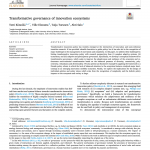
Könnölä et al. Transformative governance of innovation ecosystems
Send download link to:
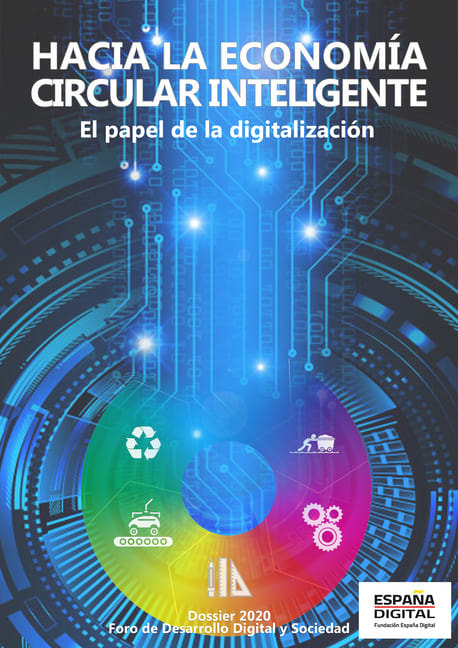
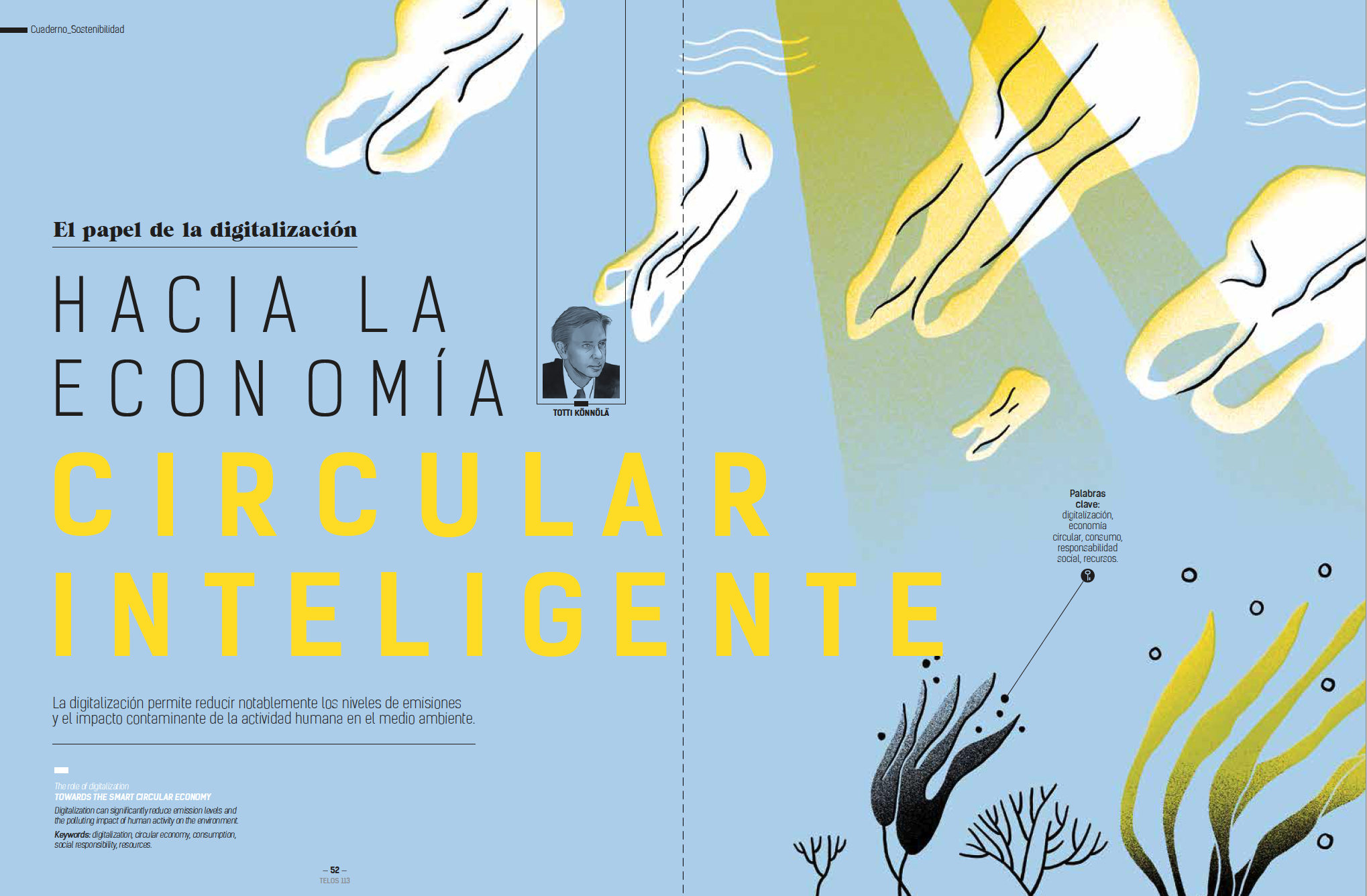
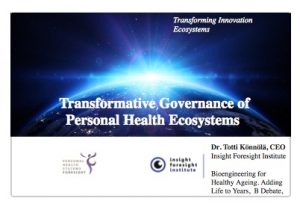 Invited speech of Dr. Totti Könnölä, CEO inf Insight Foresight Institute in the scientific conference ‘Bioengineering for Healthy Ageing. Adding Life to Years’ November 9th 2017, CosmoCaixa Barcelona.
Invited speech of Dr. Totti Könnölä, CEO inf Insight Foresight Institute in the scientific conference ‘Bioengineering for Healthy Ageing. Adding Life to Years’ November 9th 2017, CosmoCaixa Barcelona.